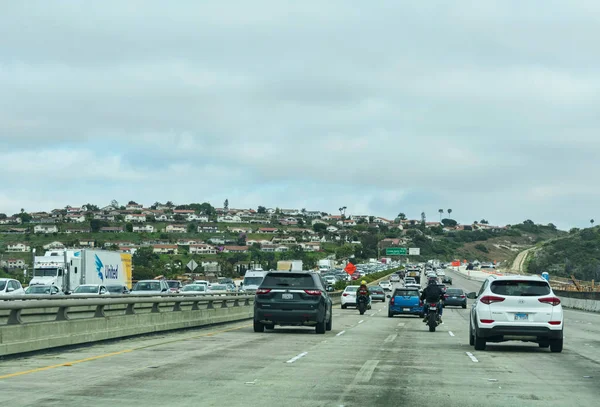Lane splitting, the practice of riding a motorcycle between lanes of slow-moving or stopped traffic, is a topic that generates considerable debate among motorcyclists, lawmakers, and drivers alike. In Westminster, Colorado, understanding the laws and regulations surrounding lane splitting is essential for both safety and legality. If you do find yourself in a motorcycle accident and need assistance, speak to a Westminster personal injury attorney about your legal options.
Contents
Current Lan Splitting Laws in Colorado
As of now, lane splitting is not explicitly legal or illegal in Colorado. The state has not enacted a law that specifically addresses the practice, leaving it in a legal gray area. However, Colorado does have laws related to safe driving practices, and motorcyclists must adhere to these while operating their vehicles.
According to Colorado Revised Statutes, motorcyclists are expected to maintain a safe following distance and cannot ride in a way that endangers other road users. This means that while lane splitting may not be prohibited outright, doing so in a manner that endangers others could lead to citations or liability in the event of an accident.
Safety Considerations
Motorcyclists who choose to lane split should prioritize safety at all times. The practice can offer significant benefits, especially in congested urban areas like Westminster, where traffic can be heavy and frustrating. Lane splitting can reduce travel time and decrease the risk of being rear-ended by vehicles that may not see a motorcycle stopped in traffic.
However, safety comes with responsibility. Riders should be aware of their surroundings, including the behavior of other drivers and the overall flow of traffic. It’s crucial to only lane split when traffic is moving slowly—ideally at speeds of 30 mph or less. At higher speeds, the risks associated with lane splitting increase dramatically.
Local Opinions and Advocacy
The lack of clear laws around lane splitting has led to various opinions among Westminster residents and local law enforcement. Some motorcycle advocacy groups argue that legalizing lane splitting could improve safety by allowing motorcyclists to navigate traffic more efficiently. They cite studies indicating that lane splitting does not increase the likelihood of accidents but rather helps to mitigate some of the dangers associated with heavy traffic.
Conversely, some drivers express concerns about the safety of lane splitting, fearing that it could lead to unexpected encounters with motorcycles in tight spaces. This has prompted calls for clearer regulations to either prohibit or officially sanction the practice.
What Riders Should Do
For motorcyclists in Westminster, it’s essential to remain informed about the evolving landscape of lane-splitting laws. Here are some tips to navigate the situation responsibly:
- Stay Informed: Keep up to date with local laws and any proposed legislation regarding lane splitting. Changes can occur, and being informed can help you make safer choices.
- Ride Defensively: Always be aware of your surroundings. Look for potential hazards such as open car doors, pedestrians, and erratic driving behaviors from other vehicles.
- Communicate with Other Drivers: Use signals to indicate your intentions and make eye contact with drivers whenever possible. Clear communication can reduce the risk of accidents.
- Limit Lane Splitting to Low Speeds: Only split lanes in slow-moving traffic, ideally when vehicles are moving at 30 mph or less. This minimizes risks and allows for quicker reaction times.
- Consider Taking a Motorcycle Safety Course: Training can enhance your skills and knowledge about safe riding practices, including the complexities of lane splitting.
Key Takeaways
While lane splitting remains in a legal gray area in Westminster, Colorado, understanding the nuances of local traffic laws and prioritizing safety can help motorcyclists navigate this practice responsibly. Whether you choose to lane split or not, being informed and cautious will contribute to safer roads for everyone. As discussions continue and more data emerges, it’s possible that the laws surrounding lane splitting will evolve, making it imperative for riders to stay educated and engaged in the conversation.




